Written by Nathaniel Miller, Director of Programs
The causes of homelessness are complex and require multiple interventions to ensure that all those affected receive the support needed to find greater housing stability. At Inn from the Cold, we believe that early interventions play a crucial role in reducing the human and financial costs that increase over time as housing issues are allowed to escalate. The biggest challenge with prevention work in the homeless serving sector is, as Columbia economist Brendan O’Flaherty has termed it, the “Goldilocks” problem. Identifying the right levels of support ensures that the limited funds available for these interventions reach families facing homelessness without it yet can reasonably sustain housing without more intensive interventions. As the esteemed researcher in urban economics and homelessness points out, the optimal levels of support are best identified at the local level (capturing the unique local cost of living and service access variables), highlighting the need for flexible funding models not always easy to administer at the federal or provincial levels.
So what is prevention and diversion?
In fields like medicine or engineering, prevention is well understood. Whether talking about a person’s health or the maintenance of a building or a vehicle, most intuitively recognize the importance of “preventative care.” Our bodies, our minds, and the buildings and machines we create benefit from addressing issues before they break down. The same is true in the homelessness-serving sector. Complex as the problem of homelessness is, a crucial part of the solution is to reduce the instances of homelessness before the stresses and anxiety of housing insecurity compound and lead to even greater human trauma and social and financial costs. Prevention and diversion is the main housing intervention that proactively moves upstream to reduce the inflows into homelessness while also reducing the costs and harm experienced by those at risk of losing their housing.
Why do prevention and diversion matter?
Housing is not just a human right, it is a fundamental building block of human dignity and well-being and plays a crucial role in sustaining the health of our communities. Research going back decades reinforces the nefarious effect of homelessness on mental health1. The negative impacts of the stress and anxiety caused by housing instability are particularly insidious for families and the cycle of poverty that often accompanies homelessness. Studies have linked the experience of child and youth homelessness to chronic adult homelessness. Every successful prevention and diversion intervention eliminates or reduces a family’s time in the emergency shelter system. We believe it contributes to breaking the vicious intergenerational cycle of homelessness and housing insecurity.
The cost-benefit of successful prevention and diversion interventions must be addressed in the immediate term. On average, the cost per family supported by this program is 80% less than the average cost of supporting a family in our emergency shelter. Prevention support helps families stay housed and out of the shelter system, while our Diversion support helps families exit the emergency shelter system quickly. While the emergency shelter plays an important role as the backstop against an immediate housing crisis, a shelter is meant to be a short-term solution. Families supported in quick rehousing free up space for families with more complex needs requiring more intensive support to successfully attain housing stability.
How The Inn delivers prevention and diversion
At The Inn, our prevention and diversion program is designed to help families maintain their housing (prevention) or quickly get rehoused (diversion) if they need to leave their existing situation or have entered the emergency shelter system. Our specialist works with families seeking assistance to assess their unique needs, and help them identify and apply for alternative resources where possible. Eligible families entered into this program are provided with a one-time financial aid to assist in securing stable housing along with three months of light-touch case management that works with them to support areas such as household budgeting, accessing employment or education, and referrals to community programs.
We also collaborate with a number of community partners across the family sector to ensure the needs of families facing a housing crisis are met. The Inn’s prevention and diversion program are one of many available to individuals and families in the Calgary area.
We see every day the incredible resilience, courage and determination that parents demonstrate as they work to improve the quality of life of their families, and we feel grateful for the opportunity to support them. For many families facing the stress of housing insecurity, the timely financial aid and the warm and compassionate support they receive from their case manager play a key role in reducing anxiety and creating space for hope and optimism for the future despite the current challenges.
What you can do to help.
The Inn’s prevention and diversion program is funded by the generosity of community donations. In our experience, the prevention and diversion program has a proven track record of directly and immediately improving the lives of the families it supports. Since 2020, over 70 families have received direct assistance from our prevention and diversion program; more importantly, less than 2% have required further assistance from our shelter or prevention and diversion program.
It takes a village to support a family and ensure every child experiences safety, security and an opportunity to thrive. A village can create solutions that work. A village can, together, move upstream and break the cycle of homelessness. The more we can do early on to preserve or maintain a stable housing situation for a family, the fewer “costs” we see both financially and, more importantly, in the damaging health and social impacts that compound when a housing crisis turns into homelessness.
If you believe, as we do, that every family in our community should be able to access critical support before a housing crisis turns into more permanent and damaging outcomes, we hope you will consider supporting us in this critical work!
Support our prevention and diversion work here.
Source:
- Padgett DK. Homelessness, housing instability and mental health: making the connections. BJPsych Bull. 2020 Oct;44(5):197-201. doi: 10.1192/bjb.2020.49. PMID: 32538335; PMCID: PMC7525583.




















